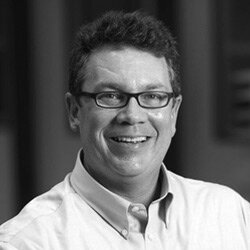The media and probing candidates’ personal histories
|
DURHAM, N.C. — Media scrutiny of political candidates’ personal history continues to intensify in the 2016 election campaign, a panel of speakers told Duke students Friday morning.
The discussion, “Memories & Falsehoods: Media probing candidates’ personal histories,” was led by Bill Adair, David Graham and Mark Stencel of the DeWitt Wallace Center for Media and Democracy. It specifically explored presidential candidate Ben Carson’s political campaign and its coverage by the press.
The 24-hour news cycle has intensified media scrutiny of candidates, panel members said.
“In a previous era of media, we would call this a feeding frenzy, but now these things happen in such fast and intense bursts, it’s more like a snacking frenzy,” Stencel said.
Stencel, former managing editor for digital news at National Public Radio, co-directs the Reporters’ Lab at the DeWitt Wallace Center. He was joined on the panel by Graham, a staff writer for The Atlantic, and Adair, who directs the center and created the Pulitzer Prize-winning website PolitiFact.
Adair, Stencel and Graham described the conflicting biographical claims Carson has made.
For instance, Carson has stated that he was offered a full scholarship to West Point. However, there is no record of the candidate’s application to or acceptance at West Point, the panel members said.
In his biography, Carson also claims he housed white classmates during the racial riots after Martin Luther King, Jr.’s assassination. However, journalists have been unable to find conclusive evidence supporting that claim.
Several students said they felt Carson had received special scrutiny from the media in comparison with other candidates. That attention reflects Carson’s own emphasis on his background as a neurosurgeon and not a politician, Graham and Stencel said.
“Carson is on the rise in the polls, so the attention of media shifts to him,” Stencel said. “Carson’s appeal is entirely based on his biography, so the reporters, shifting with the attention of the public, start refocusing again on that biography and any elements of that biography.”
Intense competition between media outlets adds to scrutiny of Carson as various news outlets strive to break the story first, panelists said.
“They suspect that this guy has, at a minimum, exaggerated these things and could have truly fabricated them, and they feel it is their obligation as investigative journalists to look into this,” Adair said. “They’re digging, and now their hand has been forced, or they feel like it’s been forced, because of this feeding frenzy of competition.”
Bill Adair
Professor of the practice of journalism and public policy; director of the DeWitt Wallace Center for Media and Democracy, Reporter’s Lab; creator of PolitiFact


